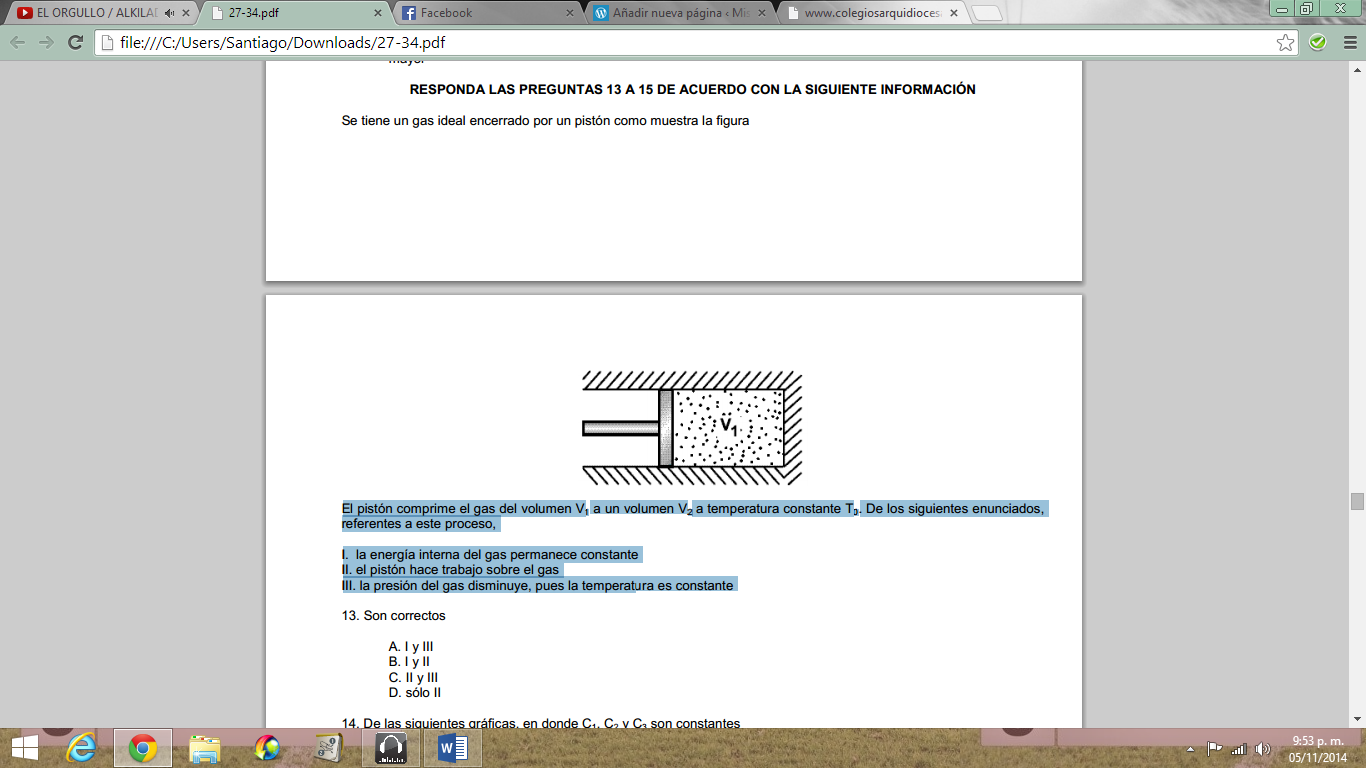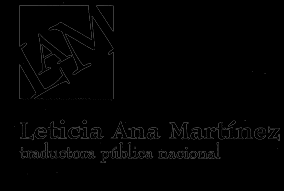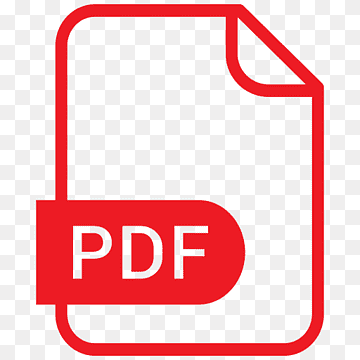4 THE SEVENTH DIALOGUE – DISASTER RISK REDUCTION A
12 SEVENTH REGULAR MEETING OF THE OEASERWXIII672 OPENING STATEMENT CHAIR OF THE SEVENTH
14 INSTITUTE FOR CHRISTIAN TEACHING EDUCATION DEPART OF SEVENTHDAY
4 THE SEVENTH DIALOGUE – DISASTER RISK REDUCTION A
400 SEVENTH ST SW WASHINGTON DC 20590 JANUARY 10
A57356 FIFTYSEVENTH SESSION A57150 THE PRESENT REPORT
Introduction to the discussion panel:
/
The Seventh Dialogue – Disaster Risk Reduction: A matter of Good Governance
This was the seventh dialogue of a series that the Department of Sustainable Development of SEDI has been presenting as part of its contribution to the High Level International Advisory Committee for the World Congress on Justice, Governance and Law for Environmental Sustainability, which is being co-sponsored by the OAS and will be held during the ‘sandwich days’ at Rio+20 in mid-June.
The key messages and recommendations from this expert panel will be compiled in a comprehensive document, along the messages and recommendations from all other dialogues, that will be presented before the Congress.
It is our expectation that the messages and recommendations of this Discussion Panel will also feed into the on-going discussions of the OAS Permanent Council-CEPCIDI Joint Working Group on Existing Mechanisms on Disaster Prevention, Relief and Humanitarian Assistance among Member States.
The Dialogue was opened by Ambassador Leonidas Rosa Bautista, Permanent Representative of Honduras to the Organization of American States and Chair of the OAS Permanent Council. Also, at the Dialogue, there were representatives from the OAS Permanent Missions. Pablo Gonzalez, Chief of the Risk Management and Adaptation to Climate Change Section of the Department of Sustainable Development of the OAS, moderated the discussion among the expert panelists: Andres Calderon, Associate Director of the Stephenson Disaster Management Institute (SDMI), Louisiana State University; Juan Carlos Orrego, United Nations Development Programme (UNDP); and Armando Guzman, Sr. Disaster Risk Management Specialist of the World Bank.
While Governance and Good Governance are terms commonly and widely used, their meaning and interpretation varies based on cultural constructions, and institutional and programmatic requirements established by those who use these terms.
For instance, the World Bank defines Governance as “the rule of the rulers, explains the way “… power is exercised through a country’s economic, political, and social institutions.” Among other definitions and according to the UN Economic and Social Commission for Asia and the Pacific, UNESC-AP, Governance means: “the process of decision-making and the process by which decisions are implemented (or not implemented)”.
On the other hand, when we talk about Good Governance, we usually refer to the attributes and mechanisms required to promote it. And that regards, the Organization of American States (OAS) believes that strong democratic institutions are the foundation of good governance. Active and responsible public participation results in self-awareness and sound risk assessment, while fostering transparency and accountability leads to more resilient and better prepared communities.
For the purpose of defining the basis for discussion of this Dialogue on Disaster Risk Reduction, the Moderator defined Governance as “the process of decision-making that leads to the implementation of actions towards reducing risk, preventing, mitigating and preparing for disasters, managing the relief and response efforts, rehabilitating and reconstructing the destroyed and damaged infrastructure, and recovering livelihoods and all capacities; and the flow of information and knowledge that supports that process.”
Trends on Disasters
Economic growth in many countries in the Americas has not only brought well-being and opportunities for many, but has also increased the exposure of assets and the vulnerability of populations.
With economies becoming more interdependent, the negative impacts of disasters have spilled over international borders affecting larger numbers of people and making Disaster Risk Reduction (DRR) everybody’s business.
With more disasters and higher levels of international humanitarian assistance, particularly from within the region, hemispheric coordination has become more necessary than ever. In addition, there have been an increasing number of non-traditional international humanitarian organizations within the past years, intended to fill gaps in capacity in the assisted countries. However, the absence of clear policies and clear ‘rules of engagement’ for international humanitarian assistance has posed coordination challenges and resulted in a dilution of humanitarian assistance, response and relief efforts. Consequently, complex emergencies have become increasingly more complex.
In responding to the Moderator’s questions, the panelists addressed the following key issues:
DRR and Development: From risk drivers to vulnerability reduction drivers:
Land use planning, risk zoning, and building codes should be taken into account, when seeking to reduce disaster risk.
In Latin America land tenure plays an important role into increasing risk. There is a need for driving vulnerable communities away from high-risk areas –flood plains and steep slopes prone to landslides, to safe zones. However, markets and income sources are often what drives people to settle around the periphery of highly populated urban areas, and on disaster prone zone.
The cause of disasters: Demographic transition processes, through which the Hemisphere has gone in the last 50 years, are also to blame when it comes to lack of adoption of land use planning based on risk assessment. Currently, the region is in the middle of a process that will last at least 20 more years.
Disaster Risk Reduction should be integrated into Sustainable Development through recovery processes and in all the phases of DRM.
There is a need to strengthen mechanisms and institutions, including the private sector, as agent of change towards a culture of prevention.
Financing Disaster Mitigation and Prevention under a permanent ‘states of emergency’:
Investing in Disaster Mitigation and Prevention is a great challenge, when most vulnerable countries and communities live in a permanent ‘state of emergency’.
In LAC the biggest expenditures are for disaster rehabilitation and reconstruction. There are no policies that can help integrate disaster prevention and mitigation measures into the reconstruction and recovery phases.
Existing recovery programs should be reinforced so as to avoid the drama of eternal victims from disasters. There is a need for modernization of recovery policies in order to break with the post-disaster poverty cycle.
A way to address this challenge could be establishing an incremental cost fund for covering additional costs –within the rehabilitation and reconstruction investments, necessary to increase the resilience of the damaged or destroyed infrastructure. This would provide for an opportunity to access lower rate loans, while fostering a change of culture from a ‘reactive’ to a ‘proactive’ one.
There is no such thing as different costs but a one cost. It is not true that investing in reducing infrastructure vulnerability within the reconstruction processes is more expensive. The actual cost is the same as building well from the beginning, explained Armando Guzmán.
Disaster Risk Management is not only a matter of good governance, but also and even more important, a matter of integrating risk reduction measures into Development National Plans.
There is no single solution, and all solution must be adapted to socio-economic, financial, market-based and physical conditions.
Information Flows and Decision-making in Emergency Situations:
Continuity of Government decision-making processes is also a key element of Good Governance in DRR.
There is a very complex environment in which one single element is connected to a global network of events that unchain.
Regarding information flows and community-centered Early Warning Systems specifically, we need to find a way to capitalize on traditional knowledge to calibrate observation and monitoring systems.
We need to capitalize on new technologies to increase early warning times by providing advisories and getting communities better prepared to act quicker before an alert.
Access to information is much fractured across the different regions.
Communication is critical. Disasters are all locals. The people affected stay in the disaster place.
There is a lack of access to information and lack of standards.
The sharing of information across sectors is pivotal. There is very little coordination with the private sector.
There is a need for the media to change the paradigm on DR and CC. The culture promoted by the media does not reflect on the causes of disasters. And if there is no reflection on the causes, it cannot be political control on the executive and legislative management.
Disaster Risk Reduction National Systems:
UNISDR and the GAR11 suggest Governments should place DRM at a higher level, close to the Executive Power: ‘Responsibility for national oversight and coordination needs to be located in a central ministry, and financial planning for DRM is included in the national accounting system…’
Changes (overturn) in administrations are seen as a one of the main obstacles to implement State Policies capable to introduce long-term measures and strategies.
There is still a debate on whether a centralized ministry can undertake DRR, as it requires specialized expertise located in sectoral ministries responsible for constructing risk.
It is urgent to better work with legislators so as to establish a long-term policy.
Final considerations:
What can the OAS do to promote high impact interventions? Panelists urged to increase joint collaboration among the various agencies of the Inter-American System, and the strengthening of the Inter-American Network for Disaster Mitigation as a vehicle to promote south-south cooperation.
The GS/OAS and the Inter-American System were encouraged to redouble their efforts in DRM. While politics in the region are complex, there are opportunities to take DRM and CCA as a central issue of Good Governance.
Encouraging south-south cooperation (bilateral cooperation) is fundamental. But it is important that this cooperation is specialized in the various aspects and phases of disaster risk reduction, such as land tenure, training and capacity building. agriculture, tourism, energy, industry, etc. It has to be specific and no general, and with a strategy to promote the sustainability of such cooperation.
Countries need to have a comprehensive disaster risk management program.
Institutions need to be able to criticize past formulas and to create new strategies.
‘TRANSFORMING QUALITY’ SEVENTH QUALITY IN HIGHER EDUCATION INTERNATIONAL SEMINAR
BUTTERFLY HOUSE DOCENT MANUAL SPRING 2018 SEVENTH EDITION TABLE
CBIB SEVENTH UPDATE (UD7) (AINSWORTH AM & HENRICI A
Tags: dialogue –, this dialogue, dialogue, reduction, seventh, disaster
- ORGANIZAČNÍ STRUKTURA PA ČR REKTOR KANCELÁŘ REKTORKY PERSONÁLNÍ SKUPINA
- PROJETO DE LEI Nº 364 DE 2002 INSTITUI
- TYPE CERTIFICATE COMPLIANCE CHECKLIST PROJECT NUMBER DATE ORIGINATOR DRAFT
- CUENTA PÚBLICA 2020 CONECTOR RECTO 12 HOSPITAL REGIONAL DE
- CIUDAD DE MÉXICO ÓRGANO DEL GOBIERNO DEL DISTRITO FEDERAL
- PROGLAŠAVAM ZAKON O ŠUMAMA KOJEGA JE HRVATSKI SABOR DONIO
- Ðïࡱáþÿ Þÿÿÿ ¥áàø¿jbjbj¢¢x89rèrè 8ÿÿÿÿÿÿ·nn¾¾¾ÿÿÿÿâââp2dvâx9c)좸¸¸¸)))))))x88+²`a)¾x9e|a)nn¸¸æv)ààà n8¸¾¸)à)ààvu¦9(¸ÿÿÿÿðx8dlâùñïÿÿÿÿºµ )l)0x9c)áxx9aºx96x9a9(9(bx9a¾{(x8
- [SRJIRA3783] BEHAVIOURS SETREQUIRED METHOD FOR TEMPO ACCOUNT AND
- VIII UNIVERSIDADE DO ESTADO DO RIO DE JANEIRO CENTRO
- POWERPLUSWATERMARKOBJECT3 SUBJECT ACCESS REQUEST FORM UNDER THE TERMS OF
- SAMPLE RECRUITMENT LETTER DEAR COLLEAGUE I AM WRITING TO
- IZJAVA SPODAJ PODPISANAI IZJAVLJAM DA DOVOLJUJEM OBJAVO SVOJIH
- MILTON KEYNES COUNCIL LOCAL CONVENTIONS FOR THE NJC JOB
- APPLICATION FORM NATURAL GARDEN EXEMPTION THIS COVER PAGE CONTAINS
- 4 TRAS LA HUELLAS DE FRANCISCO DE ASÍS GUIÓN
- FORMULARIO DE PROYECTOS A PRESENTAR POR LAS UNIVERSIDADES 1
- PLAN DE COMUNICACIÓN PICCADILLY COFFEE PLAN DE COMUNICACIÓN PICCADILLY
- CHARACTERILLNESS GUIDE GIRL INTERRUPTED HPSYCHOLOGY SPRING 2010 SUSANNA KAYSEN
- SENTIDO Y SENSIBILIDAD JANE AUSTEN SENTIDO Y SENSIBILIDAD JANE
- LETTER 1 – REQUEST FOR DOCTOR’S CERTIFICATE THIS
- PROTOCOLO DE INSPECCION PÁGINA 1 DE 1 PROTOCOLO DE
- BASE OF KROK 1 QUESTIONS OF LAB EXAM 4
- “TODO ESO QUE DICES ESTÁ MUY BIEN PERO VEN
- IES GUADALPEÑA PROGRAMACIÓN CORTARESUMEN INFORMATIVO DEL MÓDULO DE EMPRESA
- INSARAG LESSONS LEARNT MEETING FOLLOWING THE ALGERIA EARTHQUAKE OF
- DENUMIREA UNITĂŢIICUI…………………………… NR COMANDĂ…… …………………………………… DATA A DRESACOD POSTAL………………………………
- КВАРТИЛИ ОСНОВНЫХ ЖУРНАЛОВ ПО БАЗЕ WEB OF SCIENCE CORE
- OBRAZAC ZA PRIJEDLOG ZA IMENOVANJE ČLANA SAVJETA RTV CETINJE
- ANEXO III NACIMIENTOS (1) FICHERO NACPPMMM (PP CÓDIGO
- PAUL BERCHERIE LOS FUNDAMENTOS DE LA CLÍNICA PAUL BERCHERIE
FELIX DA HOUSECAT FELIX DA HOUSECAT’S 2001 ALBUM KITTENZ
 DATOS DE LA PREGUNTA TEMA COMPETENCIA PROCESOS TERMODINÁMICOS PREGUNTA
DATOS DE LA PREGUNTA TEMA COMPETENCIA PROCESOS TERMODINÁMICOS PREGUNTACOMMONWEALTH OF MASSACHUSETTS HUMAN RESOURCES DIVISION CLASS SPECIFICATION 969
SUMMARY 17 A NEW ENERGY SOURCE IS NEEDED FOR
INTERROGAZIONE SCRITTA P026408 DI BOGDAN GOLIK (PSE) ALLA COMMISSIONE
1 EINTAUCHARMATUR ZUM FESTEINBAU ODER ZUR MONTAGE MITTELS EINER
 ORACLE® HYPERION FINANCIAL CLOSE MANAGEMENT RELEASE 11122300 INTEGRATION GUIDE
ORACLE® HYPERION FINANCIAL CLOSE MANAGEMENT RELEASE 11122300 INTEGRATION GUIDE MEMBANGUN JARINGAN KOMPUTER (PENGENALAN HARDWARE DAN TOPOLOGI JARINGAN) OLEH
MEMBANGUN JARINGAN KOMPUTER (PENGENALAN HARDWARE DAN TOPOLOGI JARINGAN) OLEHCONFERENCIA REGIONAL SOBRE MIGRACION VIII REUNION DE VICEMINISTROS 2630
ATTACHMENT Y DISCHARGE INFORMATION (MUST BE COMPLETED AND SUBMITTED
 LETICIA ANA MARTÍNEZ USPALLATA 3625 (C1437JCU) BUENOS
LETICIA ANA MARTÍNEZ USPALLATA 3625 (C1437JCU) BUENOS USE OF PAPER FIBER BYPRODUCTS FOR BEDDING DAIRY CATTLE
USE OF PAPER FIBER BYPRODUCTS FOR BEDDING DAIRY CATTLE I NSTRUCCIONES PARA ACCEDER AL ARBITRAJE SOLICITUD POR ACUERDO
I NSTRUCCIONES PARA ACCEDER AL ARBITRAJE SOLICITUD POR ACUERDO1 SZÁMÚ MELLÉKLET A 461997 (XII 29) KTM RENDELETHEZ
 STATUT___STOWARZYSZENIA
STATUT___STOWARZYSZENIALĪGUMS PAR SKRUNDAS VIDUSSKOLAS SPORTA ZĀLES COKOLA UN ĢĒRBTUVJU
 DOWODY MATEMATYCZNE JEŻELI CHCEMY WYKAZAĆ ŻE PEWNA LICZBA DZIELI
DOWODY MATEMATYCZNE JEŻELI CHCEMY WYKAZAĆ ŻE PEWNA LICZBA DZIELIFAQ OF MS SASSER REGARDING THE IR & IM
 MODELO PARA CURRICULUM VITAE 1 DATOS PERSONALES [INSERTE
MODELO PARA CURRICULUM VITAE 1 DATOS PERSONALES [INSERTEACKNOWLEDGEMENTS SPECIAL THANKS TO PAUL OLIVER FOR ALL HIS